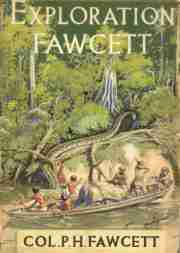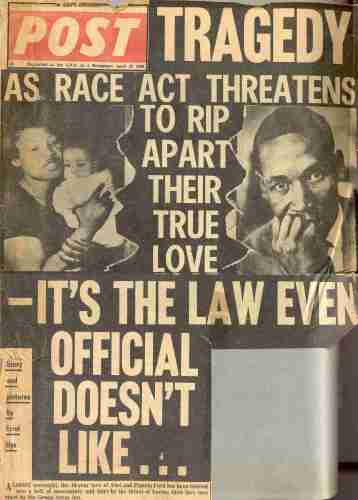BRAZIL -- The Making of a Novel - Part 2
Why choose Brazil as my subject? And why on such an immense scale? I've always believed one should make no small dreams for the results will be commensurate. During our time together, James Michener and I spoke about places that would lend themselves to treatment in epic novels. He mentioned Alaska and the Caribbean, both of which would become locales for Michener books. I suggested Brazil.
The more I began to think of Brazil, the more reasons I found for wanting to write about the country. My very ignorance prompted question after question, and when I began to look for answers, I quickly sensed a tremendous story that hadn't been told to the North American public. As an outsider to both nations, I had a singular vantage point unbridled with innate prejudices and chauvinism.
Among other compelling reasons for choosing Brazil, not the least was my having just spent two years delving exhaustively into the history of my birthplace. Broadly-speaking, the relations between the races in South Africa and Brazil couldn't have been more different in the 1980s: how, when, why, I wanted to know, did the two nations take such radically different paths? This wasn't something to include in the book I envisaged about Brazil but it gave me a base-line to work from in considering the dynamics of Brazilian society. In Africa, I also traveled widely in Mozambique and Angola, gaining insights into the Portuguese, their history and way of life, a valuable introduction to the colonizers of Brazil.
On January 5, 1981, the first working day of the year, I woke up at the usual time when I would leave for the Digest's offices in Chappaqua. This day there was no Digest, only the vast unknown in Brazil and with my future.
During the next three months I haunted libraries and second-hand bookstores in New York. I wasn't selective but read anything I came across related to Portugal and Brazil, anything but fiction. In plotting so vast a story one has to take care not to lock into the imagination of others and inadvertently borrowing from their works, a pitfall Michener drew my attention to when we were working on The Covenant.
I read hundreds of books and articles on my library forays, not only on my initial three-month plunge
into Brazil but as I went along. A small sampling of my reading list includes some of the classic works on Brazil and Portugal, both contemporary and historic:

The Mansions and the Shanties, Gilberto Freyre
The Masters and the Slaves, Gilberto FreyreOrder and Progress, Gilberto Freyre
New World in the Tropics, Gilberto FreyreBandeirantes and Pioneers, Vianna MoogHistory of Portugal, Antonio H. de Oliveira MarquesPortuguese Seaborne Empire, Charles R. BoxerPortugal and Brazil, Harold Livermore and W.J. EntwhistleColonial Background of Modern Brazil, Caio Prado, Jr.The Brazilians, José Honorio RodriguesLatin America, Preston E. JamesHistory of Brazil, Andrew Grant, 1809History of Brazil, E. Bradford BurnsFrom Barter to Slavery, Portuguese and Indians, 1500-1800, A. MarchantCaptains of Brazil, Elaine SanceauTrue History of His Captivity, Hans StadenDiscovery of the Amazon, according to account of Fr. Gaspar de CarvajalThe Histories of Brazil, Pero de Magalhaes, trs. John B. StetsonHakluyt, the Principal Navigations, Volume XIA Treatise of Brazil, Padre Fernão de Cardim in Purchas, his Pilgrims XVIDutch in Brazil, 1624-1654, Charles R. BoxerGolden Age of Brazil, 1695-1750 , Charles R. BoxerSalvador de Sa and the Struggle for Brazil and Angola, Charles R. BoxerBrazil, Portrait of Half a Continent, T. Lynn SmithApostle of Brazil: Padre João Anchieta, Helen G. DominianJews in Colonial Brazil, Arnold WiznitzerThe Negro in Brazil, Arthur Ramos trs. Richard PatteeNeither Slave nor Free, David W. Cohen and Jack P. GreeneAfrican Religions of Brazil, Roger BastideBrazilian Culture, Fernando de Azevedo, trs. William R. CrawfordEvolution of Brazil, Manoel de Oliveira LimaRebellion in the Backlands, Euclides da Cunha
One of my early sources was the three volume History of Brazil written by the English romantic poet, Robert Southey, between 1810 and 1819, considered the first comprehensive history of colonial Brazil. I pored over Southey's thousand-plus pages in awe of his achievement, the closest he ever came to Brazil was among the volumes in the library of his uncle, Reverend Herbert Hill, chaplain to the English Factory at Lisbon. I would have the opportunity to visit Brazil and carried Southey with in my thoughts, an inspiration to another outsider making a literary journey of epic proportions. Southey showed that it could be done.


 1ike myself who scoffed at the idea that an Englishman had been killed by headhunters and pictured our champion sitting on a golden throne in E1 Dorado.
1ike myself who scoffed at the idea that an Englishman had been killed by headhunters and pictured our champion sitting on a golden throne in E1 Dorado. 


